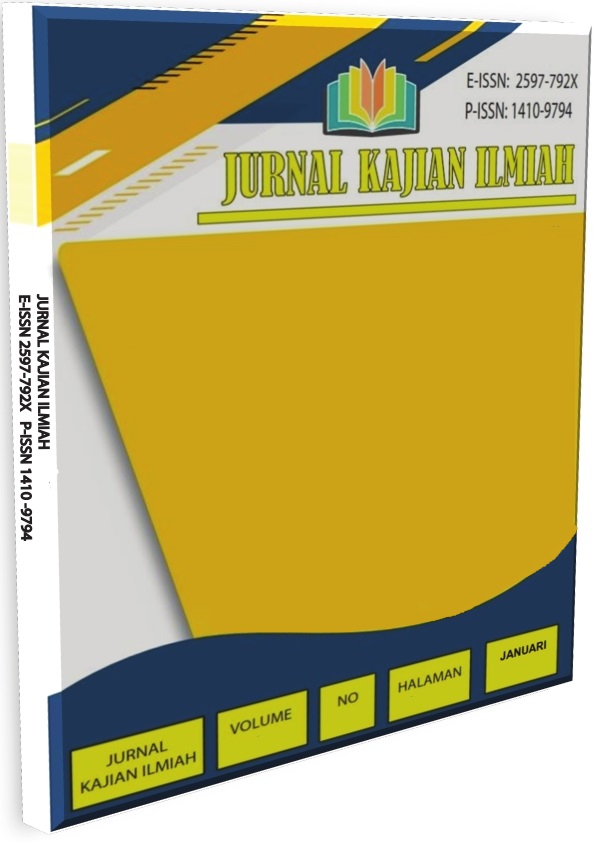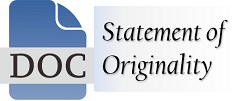Regulasi Emosi dan Parenting Stres Pada Ibu Bekerja
DOI:
https://doi.org/10.31599/7rwzr490Keywords:
Emotion Regulation, Parenting Stress, Working MothersAbstract
This study aims to empirically examine the contribution of emotional regulation to parenting stress on working mothers. The hypothesis proposed is that emotion regulation is able to predict parenting stress on working mothers. The subjects of this study were working mothers who had children with a total number of 318 mothers. The study uses two measuring instruments, Emotion Regulation Scale (Gross and John, 2003) with reliability coefficient 0.831 and Parenting Stress Scale (Berry and Jones, 1995) with reliability coefficient 0.71. Data analysis using simple regression techniques and processed using SPSS 23 for Windows. Hypothesis test results show that emotion regulation is able to predict parenting stress significantly with F = 15.838 and p = 0.000 (p <0.001). The R square value of 0.048 means that regulation of emotion is able to contribute effectively to parenting stress by 4.8%, while 95.2% is influenced by other factors.
Downloads
References
Apreviadizy, P., & Puspitacandri, A. (2014). Perbedaan Stres Ditinjau dari Ibu bekerja dan Ibu Tidak Bekerja. Jurnal Psikologi Tabularasa, 9(1), 58–65.
Fitriani, A., & Ambarini, T. K. (2013). Hubungan antara Hardiness dengan Tingkat Stres Pengasuhan pada Ibu dengan Anak Autis. Jurnal Psikologi Klinis Dan Kesehatan Mental, 2(2).
Garnefski, N., Kraaij, V., & Spinhoven, P. (2001). Negative Life Events, Cognitive Emotion Regulation and Emotional Problems. In Personality and Individual Differences (pp. 1311–1327).
Gross, J. J. (1998). Antecedent and Responsefocused Emotion Regulation : Devergent Consequences for Experiences, Expression, and Psychology. Journal of Personality and Social Psychology, 7(1), 224–237.
Gross, J. J., & John, O. P. (2003). Individual differences in two emotion regulation processes : for affect, relationship, and well-being. Journal of Personality and Social Psychology, 5(2), 348–362.
Gross, J. J., & Thompson, R. A. (2007). Emotion Regulation: Conceptual Foundations. In J. J. Gross (Ed.), Handbook of Emotion Regulation. New York: Guilford Press.
Harlinda, W. (2018). Hubungan Antara Dukungan Sosial dan Hardiness dengan Stres Pengasuhan pada Ibu yang Memiliki Anak Autis. Universitas Muhammadiyah Surakarta.
Hidayati, E. (2013). Peran Pendampingan Regulasi Emosi terhadap Perilaku Maltreatment pada Ibu dari Anak GPP/H. Humanitas, 10(2).
Ikasari, A., & Kristiana, I. F. (2017). Hubungan Antara Regulasi Emosi dengan Stres Pengasuhan Ibu yang Memiliki Anak Cerebral Palsy. Jurnal Empati, 6(4), 323–328.
Kim, A. (2015). Study on the Effect of Working Mom ’ s Conflict between Job and Nurturing on Parenting Stress - Focus on Mediating Effect of Core Competence in Nurturing. 8(October). https://doi.org/10.17485/ijst/2015/v8i26/
Lestari, S. (2018). Psikologi Keluarga: Penanaman Nilai dan Penanganan Konflik dalam Keluarga (5th ed.). Jakarta: Prenadamedia Group.
Maharrani, A. (2019). Ibu Bekerja 40 persen lebih stres.
Periantalo, J. (2016). Penelitian kuantitatif untuk psikologi. Yogyakarta: Pustaka Pelajar.
Purnomo, J. C., & Kristiana, I. F. (2016). Hubungan Antara Dukungan Sosial Suami dengan Stres Pengasuhan Istri yang Memiliki Anak Retardasi Mental Ringan dan Sedang. Jurnal Empati, 5(3), 507–512.
Setyowati, R. (2010). Keefektifan Pelatihan Keterampilan Regulasi Emosi Terhadap Penurunan Tingkat Stres Pada Ibu yang Memiliki Anak Attention Deficit and Hyperactive Disorder. Universitas Sebelas Maret Surakarta.
Yasmin, P. A. (2016). Memahami Stres yang Rentan Dialami Ibu Bekerja.












_-_Copy1.jpg)




